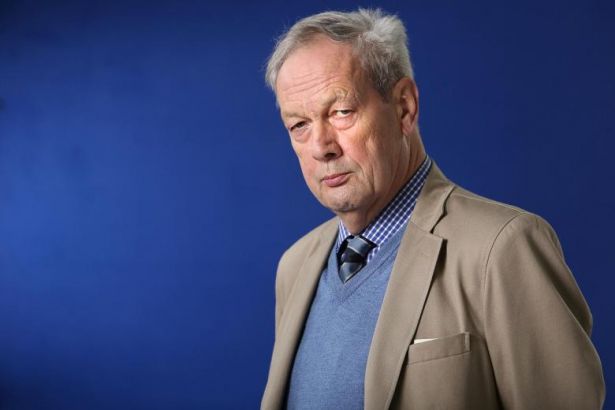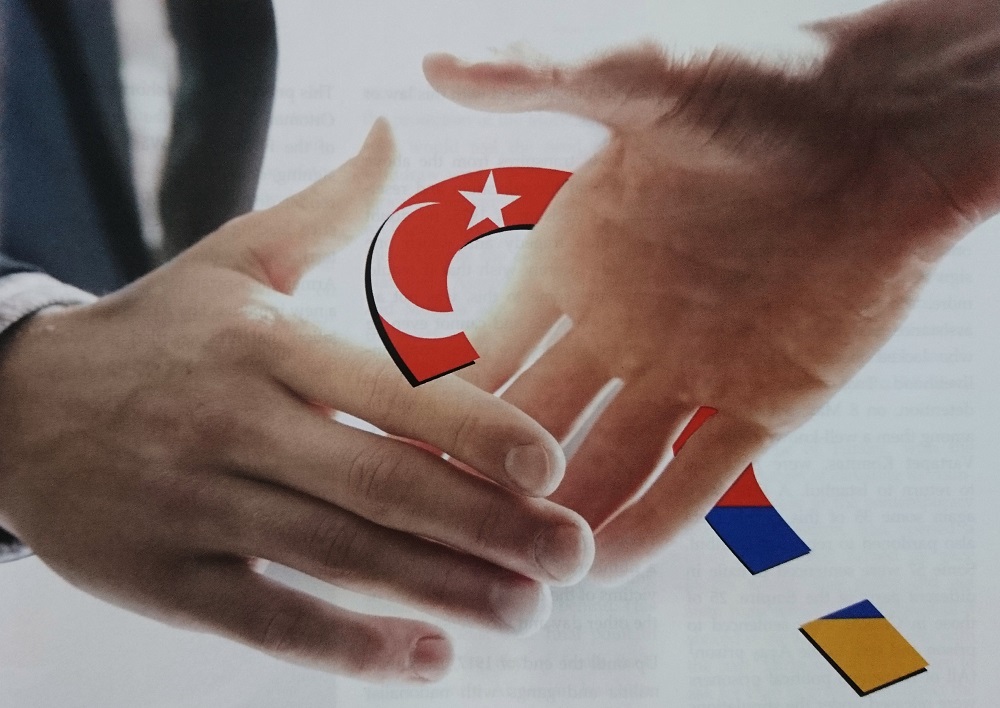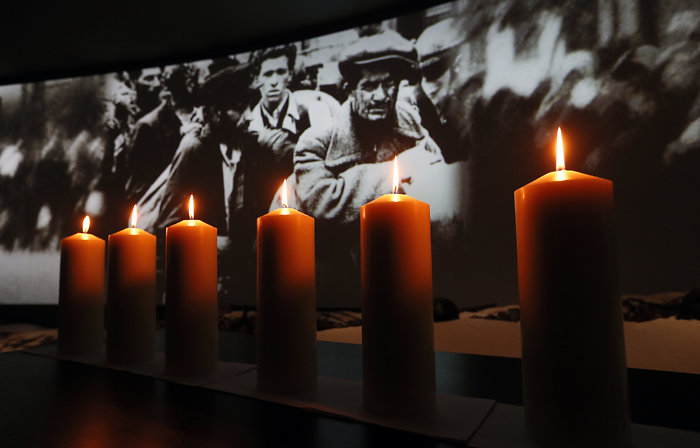Relations between Iran and Russia are not only important as bilateral ties between two important political players, but are also of high significance from international and regional viewpoints. As a result, many analysts of diplomatic issues and international relations have focused on these relations. During the Iranian calendar year 1390 (March 21, 2011 – March 19, 2012), relations between the two countries experienced a period of tension after the Russian Federation refused to fulfill its contract for delivering S-300 missile defense systems to Iran which led to the exchange of fiery remarks between officials in Tehran and Moscow. However, during the following year and after the reelection of Vladimir Putin as the new Russian president, and also as a result of major developments at regional and international levels, relations between the two countries greatly improved and were marked with unprecedented exchange of diplomatic delegations between Iran and Russia.
Disregarding the total volume of bilateral trade, which has been constantly a Gordian knot in relations between the two countries, in all other fields, those relations underwent tangible advances last year and in many fields, positive developments were remarkable. On the whole, exchange of diplomatic delegations between the two countries hit the unprecedented record of 170 delegations during a single year. As for economic, political and cultural cooperation, many agreements were signed between Tehran and Moscow some of which will be briefly mentioned hereunder. In political and security fields, visits were exchanged by the two countries foreign ministers, deputy foreign ministers as well as various directors general. The important point in this regard was engagement of Iranian and Russian officials during their negotiations with the current issues in the Central Asia and Caucasus. In addition, Iran sent its deputy foreign minister to represent the country in negotiations related to the situation in Afghanistan which were held in Moscow.
Cooperation between Iran and Russia in the issue of Syria has been considered a major milestone in relations between the two countries. Frequent exchange of visits between the two countries officials, including by Iran's Secretary of the Supreme National Security Council Saeed Jalili, Secretary of the Security Council of Russia Nikolai Platonovich Patrushev, and secondary meetings between their deputies have been aimed at coordinating the two countries’ positions on Syria. Even the Russian Foreign Minister Sergei Lavrov paid a visit to Iran to negotiate with the Iranian officials on this issue. Iran and Russia have proven that through cooperation and coordination, they will be able to play a great role in the regional developments of the Middle East while preventing further strengthening of the United States unilateral approaches in the region and bullying policies of other Western states. It seems that with regard to the ongoing developments in Syria, Russia has a good feeling about cooperating with Iran while, at the same time, stressing on its basic positions on other issues of international import. Russia’s Chairman of Presidium of the Council on Foreign and Defense Policy Fyodor Lukyanov has touched on this issue, noting that Russia is feeling for the first time after many long years that it should not only stand firm on its geopolitical interests, but also on its basic positions over different political issues. The visit to Iran by the Russian Minister of Internal Affairs Vladimir Kolokoltsev has had no precedence in the past three decades.
The visit, which took place in late February 2013, led to the conclusion of a security agreement between the two countries. Of high import was also the visit to Iran by a parliamentary delegation of the Russian State Duma representatives, which was headed by deputy chairman of the Duma and head of the Russia-Iran Parliamentary Friendship Group Nikolai Levichev. The fact that the deputy chairman of the State Duma is also head of the Russia-Iran Parliamentary Friendship Group is a good sign for the further promotion of parliamentary relations between the two sides. The trip by the Russian Deputy Prime Minister for Defense Dmitry Rogozin to Iran during the closing days of the last Iranian calendar year (ended March 20, 2013), clearly proved that Russia has been trying to open a new avenue for interaction and cooperation with Iran during recent months. In addition, Tehran and Moscow tried to expand cooperation during the same year through the annual meeting of the Shanghai Cooperation Organization in Kyrgyzstan which was attended by the Iranian First Vice President Mohammad Reza Rahimi and the Russian Prime Minister Dmitry Medvedev.
The meeting between the heads of departments of environment of the Caspian Sea littoral countries in Moscow, which culminated in the conclusion of an agreement on the environment of the Caspian Sea, was also an important development. Major developments which aimed to boost economic cooperation between the two countries included: various rounds of negotiations between the National Iranian Oil Company and the Russian state-owned oil company, Zarubezhneft; conclusion of an agreement for the strengthening of economic cooperation between Iran and Daghistan; the visit to Tehran by the Russian Health Minister Veronika Skvortsova with the goal of expanding medical cooperation between Tehran and Moscow; holding of an exhibition in Tehran which showcased advanced technologies of Russia; holding of an exhibition of Iranian producers in Russia’s city of Astrakhan; and finally, holding of the 10th meeting of Iran-Russia Joint Economic Commission, which was attended by the Iranian Foreign Minister Ali Akbar Salehi and the Russian Minister of Energy Alexander Valentinovich Novak. A memorandum of understanding was signed between the two sides following the Joint Economic Commission meeting in 139 paragraphs which covered a wide range of cooperation between Tehran and Moscow.
In addition, three agreements in the fields of standardization, cooperation between the two countries’ universities on environment, as well as collaboration between Iranian and Russian road transportation companies were signed on the sidelines of the aforesaid meeting. A paragraph included in the memorandum of understanding, which was signed after the meeting of the Iran-Russia Joint Economic Commission, pertained to cooperation between Tehran and Moscow in the construction of new nuclear power plants in Iran. After the launch of the electric railroad between the Iranian cities of Tabriz and Azarshahr in the last Iranian calendar year, Iranian and Russian officials have been engaged in talks over the electrification of the railroad which connects Iranian cities of Gorgan and Garmsar. Russia has also agreed to cooperate with the Iranian contractor for the electrification of Tehran – Mashhad railroad. In the field of oil and energy, however, no solid agreement has been reached between Tehran and Moscow despite frequent trips to Moscow by the head of the National Iranian Oil Company.
The two sides’ deputy ministers of energy and petroleum have, nonetheless, agreed on drawing up a roadmap for cooperation in this regard. The former Iranian Minister of Labor, Welfare and Cooperatives Abdolreza Sheikholeslami also paid a visit to Moscow in January. The conclusion of agreements between the two countries has not been limited to the areas of politics, security and economy, but cultural relations have been also a major focus of attention. As a result, the two countries’ culture ministers exchanged visits the result of which was the signing of an agreement for cultural cooperation between Tehran and Moscow and holding of Iran's culture week in Russia. The Russia culture week has been also marked to be commemorated through an official ceremony in Tehran during the new Iranian calendar year. Interestingly, the lion’s share of the signed agreements and mutual visits pertained to the last quarter of the year, which leave no doubt that despite the cold climatic conditions in Moscow and Tehran, mutual visits between the two countries’ officials caused them to experience a relatively warm winter. When it comes to relations between Iran and Russia, the low level of economic exchanges and their lack of proportion to the high level of political relations between the two countries, has been pointed out as a bitter reality. The volume of trade between Russia and Turkey stands at 40 billion dollars a year while trade exchanges between Moscow and Beijing add up to 100 billion dollars a year.
On the other hand, the volume of trade between Iran and Turkey stands at 20 billion dollars and exchanges with China are close to 40 billion dollars. However, despite the above figures, the total volume of trade between Iran and Russia has hardly passed 3 billion dollars in recent years. According to unofficial figures, the volume of trade between Tehran and Moscow stood close to 5.3 billion dollars last year with a more than 80 percent positive tilt toward Russia. Unfortunately, bilateral trade between the two countries experienced a drastic cut in the past Iranian calendar year. According to the available estimates, the total volume of economic and trade exchanges between Iran and Russia saw a close to 40-percent drop during the past Iranian calendar year to hit a bottom low of 2 billion dollars. Concerns on the part of the Russian companies as well as the country’s banking system about working with Iran as a result of international sanctions imposed against the Islamic Republic, as well as impossibility of the settlement of bank accounts due to banking embargo against Iran, have been mentioned as the most important causes of the drastic cut in Tehran – Moscow bilateral trade last year. Study of the various sections of Iran – Russia relations will show that the issue of establishing a gas OPEC and construction of the North-South Corridor are two major issues which were largely ignored last year and need more attention in the future. A general review of relations between Iran and Russia during the past Iranian calendar year will show that Iran and Russia have continued their usual cooperation in international affairs.
During the same year, the Russians came to understand Iran's regional role in a better way. As a result of this understanding and their determination to curb the United States’ meddling in the Middle East and Eurasia, the Russians have seen a major development in their regional interactions with Iran, which has also brought more warmth and prosperity to bilateral relations between the two countries. Finding basic solutions to cut the Gordian knot of low economic exchanges – which has been a fundamental and longstanding problem – and the expansion of cooperation in order to reduce the pressure of international sanctions on bilateral economic interactions between Tehran and Moscow, are undeniable requisites which should be met so that bilateral relations between Iran and Russia can keep growing in the coming years. (The author is the Director of Iran and Eurasia Research Center “IRAS”)
© 2009-2025 Center for Eurasian Studies (AVİM) All Rights Reserved
Henüz Yorum Yapılmamış.
-
IRAN’S RELATIONS WITH RUSSIA
Mehdi SANAEI 23.04.2013 -
İRAN-RUSYA İLİŞKİLERİ
Mehdi SANAEI 23.04.2013
-
 HOMAGE TO THE MEMORY OF HISTORIAN NORMAN STONE (1941-2019) - TURQUIE-NEWS.COM - 23.06.2019
HOMAGE TO THE MEMORY OF HISTORIAN NORMAN STONE (1941-2019) - TURQUIE-NEWS.COM - 23.06.2019
Maxime GAUIN 03.07.2019 -
PROSPECTS FOR TURKEY’S POLICY TOWARDS THE SOUTH CAUCASUS - PISM - 18.03.2021
Arkadiusz LEGIEĆ 25.03.2021 -
 ERMENİSTAN TÜRKİYE İLE UZLAŞMAK İSTEMEKTE MİDİR? - DİPLOMATİK GÖZLEM - NİSAN 2019
ERMENİSTAN TÜRKİYE İLE UZLAŞMAK İSTEMEKTE MİDİR? - DİPLOMATİK GÖZLEM - NİSAN 2019
Alev KILIÇ 04.04.2019 -
 ABD BAŞKANLIK SEÇİMLERİ WASHINGTON'UN GÜNEY KAFKASYA SİYASETİNİ NASIL ETKİLEYECEK?
ABD BAŞKANLIK SEÇİMLERİ WASHINGTON'UN GÜNEY KAFKASYA SİYASETİNİ NASIL ETKİLEYECEK?
Turgut Kerem TUNCEL 08.11.2016 -
 ULUSLARARASI HOLOKOST ANMA İTTİFAKI BAŞKANI BÜYÜKELÇİ AYLİN TAŞHAN’IN HOLOKOST ANMA GÜNÜ’NDE YAPTIĞI KONUŞMA
ULUSLARARASI HOLOKOST ANMA İTTİFAKI BAŞKANI BÜYÜKELÇİ AYLİN TAŞHAN’IN HOLOKOST ANMA GÜNÜ’NDE YAPTIĞI KONUŞMA
Aylin TAŞHAN 27.01.2017


